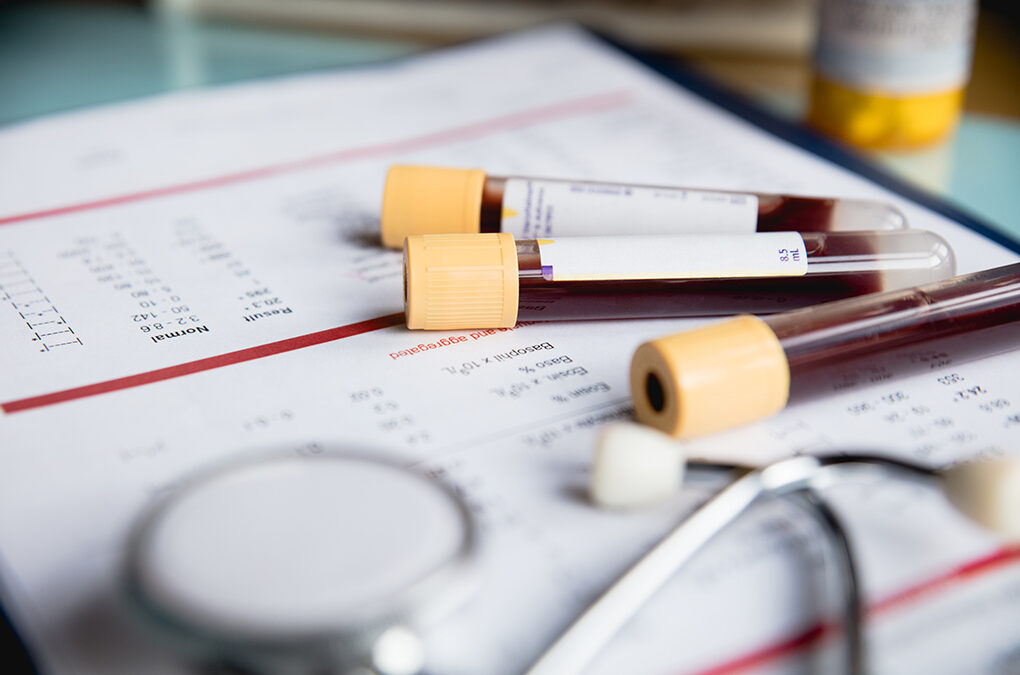If you have had more than one miscarriage, this post will help educate you about miscarriage causes and recurrent pregnancy loss testing. I’m sure that you are feeling sad, overwhelmed and tired of hearing about how you just had bad luck. I am writing what I wish I had read after two miscarriages.
You are now a habitual aborter in clinical terms, which wrecked me every time I saw it in my paperwork. It is also called repeat pregnancy loss, recurrent pregnancy loss or RPL for short.
When to get recurrent pregnancy loss testing?
Many doctors will suggest RPL testing after two miscarriages. For some doctors and states, the protocol seems to be after two miscarriages and for some, it could be three. If you have had one miscarriage, then testing usually isn’t advised because many normal, healthy women have a miscarriage, but go on to conceive just fine. But after two miscarriages, you should be thinking about testing especially if you’re not concerned about insurance coverage or costs.
How much testing to get?
Here is why I wish I had known more earlier. I would suggest testing for everything that you possibly can NOW. Even if it’s overkill, I think that’s better than the alternative, which in my case is five pregnancies and five miscarriages. Doctors seem to want to do a little testing, you have a miscarriage, then they do a little more testing, you have another miscarriage and so on. If you are worried, save yourself lots of heartache and test for everything now. One potential issue is money. See below for that. Another issue is that your doctor may not “recommend” testing for all of this. Too bad! Tell them you want it done. Or, if they don’t know enough about it or won’t do it, see a new doctor immediately.
Advocate for Repeat pregnancy loss testing
If your doctor doesn’t suggest testing, then advocate for yourself and demand it. Each doctor has their own set of tests they like to do for a recurrent pregnancy loss testing workup. Some are more thorough than others. I suggest asking your doctor which tests they plan to utilize. Do your research. If some things aren’t there that you think should be, ask about them. Many times, your doctor might only be ordering genetic testing, which is called karyotyping and is done for both partners.
Financial Aspects of pursuing miscarriage testing
I didn’t have fertility coverage through my insurance, except for diagnostic purposes, therefore many of the tests were covered. Even if you think you are not covered, like I did, pursue it and find out. Even if the testing is not covered, why would you spend thousands on IVF after having several miscarriages, only to skip paying a couple hundred or thousand dollars to potentially guide your treatment so that you don’t have to risk yet another miscarriage?
Something else to consider if you need to save money is to skip the karyotyping (the genetic testing) which costs a lot and get all of the other blood tests at least. I’m not saying you shouldn’t get it, but if you can’t afford it, at least get some of the other basic miscarriage blood tests that are cheaper.
What causes miscarriage?
- Nothing. You might not have any problems and you could truly have bad luck, especially at the two miscarriage stage.
- Hormonal. You should get tested for hormonal issues. If you’re doing IVF, they usually test for FSH, TSH, progesterone, prolactin and estradiol before treatment.
- Physical/Uterine. Saline sonograms or hysterosalpinograms will test for physical abnormalities. If you’re doing IVF, then they usually test for all this before treatment.
- Infections. As part of the IVF process, you are tested for infections, such as HIV, chlamydia, etc.
- Thrombophilias. Thrombophilias are a group of disorders that promote blood clotting.
- Immune. Immue testing is tricky and potentially controversial. I was initially tested for antiphospholipid antibodies, but nothing else. This would involve things like autoimmune and alloimmune issues, and activated Natural Killer (NK) cells, among others. Many doctors do not believe in immune issues regarding implantation dysfunction. However, lots of doctors do believe in it. From everything I’ve read and heard, immune testing is an extremely complicated area of medicine and most REs do not understand it. Another reason for controversy is the lack of studies. However, it’s hard to prove almost anything related to this field because there are so many factors. [Read my post about Immunologic Implantation Dysfunction from my old blog.]
- Genetic
- Genetic testing is used for your and your partner to determine if you have predisposed problems. The typical test is for this is called karyotyping. This is essentially a picture of your chromosomes and tests all 23 pairs. It should be done for the female and male partner. It takes a little while to get the results, because the chromosomes have to be isolated, stained and examined under the microscope. Also, besides the standard karyotyping, there is micro-array testing that is more detailed. Check out cytogenetic testing at Cincinnati Children’s.
- During treatment, you can do Comprehensive Chromosome Screening (CCS) testing on your embryos. See info on CCS vs. PGD testing.
- Egg Quality. Even if you get the karyotyping and you and your partner get good results, that doesn’t mean that your embryos will be genetically healthy. By yourselves, you’re fine, but when the egg and sperm get together, there can be problems and it’s usually because of the egg. This is sort of one of those normal abnormalities. Your doctor may be able to tell you whether he thinks your egg quality is good or bad. You can keep trying and wait for that one good egg or you can move on to donor eggs or embryos. Or, you can perform PGD or CSS testing on your embryos to determine if they are normal before transfer.
- Male Factor. Make sure your partner has a full semen analysis. Usually, this is done before treatment anyway.
Products of Conception Testing
If you ever miscarry again, please try to get the “products of conception” tested. In other words, what you pass (the embryo/fetus). If it’s at home, try to save it and keep refrigerated. I know this sounds morbid and I’m sorry, but you really should know this. Then, get it to your doctor or hospital as soon as possible. If you are miscarrying at the hospital or if you’re going to have a D&C, ASK FOR THEM DO TESTING, which would be karyotyping. This could give you valuable insight as to what’s going on with your embryos or you.
Typical Tests for Recurrent Pregnancy Loss Testing
For me, this was the typical “RPL workup.” I think this is pretty standard. I have divided them into groups.
Thrombophilias
- anti-thrombin III
- beta 2 glycoprotein 1 ab, g, a, m
- Factor II
- Factor V Leiden
- Protein
- Protein S (total)
- Protein S (free)
- Protime
- Partial Thomboplastin Time
Hormonal
- Thyroid Stimulating Hormone
Immune
- Antiphospholipid Antibodies: anti-phosphatidylserine (IGG/M/A)
- Antiphospholipid Antibodies: anti-cardiolipin (IGG)
- Antiphospholipid Antibodies: anti-cardiolipin (IGM)
- Antiphospholipid Antibodies: Lupus anticoagulant
- Rh blood type – you need to know whether you are Rh positive or Rh negative
Genetic
- Karyotyping (both partners) – this is the typical testing that they will do
Additional Recurrent Pregnancy Loss Testing
- Natural Killer cells – Some women I know were tested for this as part of their initial testing, which is an immune problem. However, as I understand it, the test that most doctors order is useless because they don’t check activation. The standard for this test is the K-562. So, don’t bother getting it unless you get it done right.
- MTHFR
- Homocysteine levels
- Vitamin D – It is thought that a deficiency of Vitamin D may lead among other things to ovulation disorders.
- Celiac Disease – Because of some GI problems I was having, someone suggested testing for celiac. Initial bloodwork showed that I had it, but later an endoscopy showed that I did not. If you have no reason to believe you have celiac and don’t have severe GI problems, then don’t get tested for this. [Read more about my celiac testing.]
- Carrier Screening – This is like karyotyping, but more in-depth. I had a friend who went through many IVF cycles and many losses and had all of the testing referenced here done including karyotyping. However, her doctor decided to delve deeper into testing her for genetic problems. They did carrier screening on her and discovered two problems. After many years, she finally had a reason.
Immunological Testing for Repeat Pregnancy Loss
Keep in mind that many doctors do not believe in immunological problems related to infertility, including my RE. Camp #1 says there’s not enough research. Camp #2 says it’s very complicated and many doctors do not understand it. Also, it’s been hard to prove with so many variables, but with embryo chromosomal testing, conclusive research will be possible.
So that I could get immunological testing, I consulted via phone with another doctor, which turned out to be a mess, but I’m still glad I had the testing.
- Antiphospholipid Antibodies: ACA (Anti-Cardiolipin Abs)
- Antiphospholipid Antibodies: APA (IgG, IgM, IgA, αPS, αPC, αPl, αPE)
- Antiphospholipid Antibodies: Anti-β2 Glycoprotein I Ab’s
- NK (Natural Killer) Activation with IVIg (K-562)
- HLA panel – 1. HLA, A, B, C, DR, DQβ 2. DQα RIA (DQ Alpha Matching)
- RIP (Reproductive Immunophenotyping)
- TPO (Thyroperoxidase Ab)
- THAB (Thyroglobulin Ab)
My miscarriage story and my testing
I had a natural pregnancy and miscarriage and after 1.5 years of trying. Then, I was diagnosed with a uterine septum and had surgery to have it removed. In my pre-IVF workup, I was diagnosed with luteal phase defect, which is treated by normal IVF protocols. Then I had another miscarriage. At that point, my doctor did genetic testing (karyotyping) for us both and did other RPL tests for me. This is where I wish I had known more and demanded even more tests. The tests revealed that I had Factor V Leiden, which is a clotting disorder. At the time, when I got the clotting disorder diagnosis, I thought that we had finally found the problem. (Spoiler Alert: we had not!)
I was subsequently treated for my next three IVF cycles by taking Lovenox, but two of those cycles resulted in two more miscarriages. So we had to assume that something else was going on. I consulted by phone with another doctor who ordered a full immune work-up. It showed some strange results indicating that I do have autoimmune issues, but it wasn’t something that they knew how to treat. If I had activated natural killer cells, there is a treatment for that. But, my results were on the fringe, as always.
I turned to surrogacy
I didn’t arrive at surrogacy quickly or lightly, but after 7 years, 5 miscarriages and no concrete answers, we decided to pursue gestational surrogacy. It’s my goal to help others realize that surrogacy is possible without an agency and for way less money. Want to know the range you can expect to spend? (HINT: it’s WAY less than the 100k you might have heard!)
Get surrogacy cost estimate
